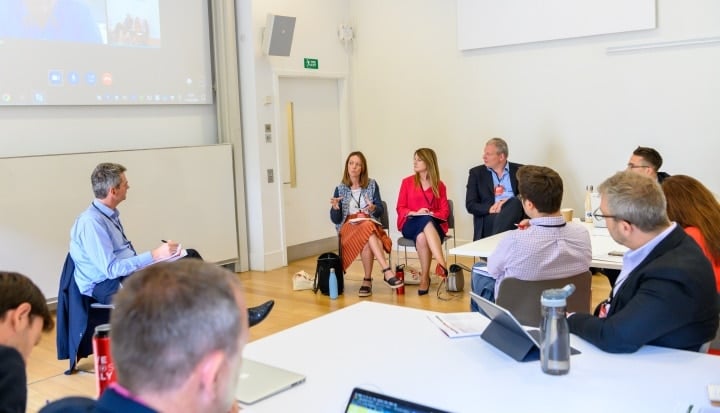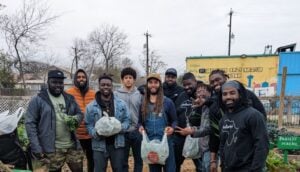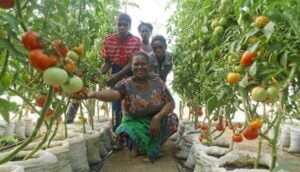Financial access and inclusion continue to be sold to farming communities in the world’s leading supply chains at the very price of poverty. How do we reduce this toxic trade-off, why is it taking so long and how does it impact the planet’s future? Tasneem Mayet, Business Fights Poverty Ambassador, shares insights from conversations had at #BFPOXFORD, closing with some examples of what has worked well in the industry and yet why it is not enough.
Unilever worked with Oxfam to pilot a poverty footprint methodology in its Indonesian supply chain nearly fifteen years ago. The process led Unilever to identify critical areas to support such as unionization and access to credit, key drivers of financial stability and productivity within local communities. Today, financial access and inclusion continue to challenge farming communities in the world’s leading supply chains. Why is it taking so long, how does it impact our future, and what do good practical solutions look like?
Thank you to Katharine Teague (AB Sugar), Sinead Duffy (Bayer), Henning Ringholz (Small Foundation) and the moderator Richard Gilbert (Business Fights Poverty) at #BFPOXFORD 2019. They offered a practitioner-led workshop on the role of large businesses, shedding light on the complexity of the issue and the need for more collaborative industry initiatives. Independent efforts are abundant, but they overlap in nature, attempt to solve part of the problem and do not easily scale.
Co-creative resource sharing amongst large companies that operate with in the same sectors could solve a greater proportion of the problem in a shorter timeframe. This matters because there continues to be a significant gap in access to funding for micro supply chain participants, which puts pressure on their ability to deliver consistently and risks jeopardising global supply chain security. More than 60% of the world’s population relies on agricultural production for its earnings and the demand for food will grow by at least 59% in the next thirty years (Harvard Business Review 2016). Yet the sector, which makes up 4% of world GDP, receives only 2.9% of total credit disbursed (Food and Agricultural Organization of the United Nations 2017). In 25 countries, this 2.9% drops to under 1%. Farmers are often forced to seek expensive unregulated forms of financing, as a result, or go without any at all.
Jorge Ortega of Visa, through a live video stream from Miami, made a simple yet profound case: in order for segments of our populations to transition out of poverty prone clusters, their entrepreneurs need to be able to enjoy the luxury of time to think up new solutions.
Our social impact goal is “How can we use our expertise for micro businesses to thrive?”
Digital and financial inclusion empowers people to grow their skills.
Financial inclusion provides access to greater pools of capital, giving small businesses the opportunity to improve their financial condition. Importantly, it also allows their owners to take a step back and think strategically about growth, innovation and new possibilities. This can pave the way to better pay and sustainable livelihoods for employees. Currently, many workers in the agricultural industry go hungry, earning less than USD1.25 per day, and are twice as likely to lose their lives in vocational accidents than if they worked in other sectors (Project Syndicate 2018). They have limited access to basic needs and are too preoccupied making ends meet to break out. For communities to evolve and truly prosper, to be empowered to rise out of poverty, to become healthy and transformative, they require a realistic pathway to financial independence.
Often based in rural areas plagued by unpredictable transaction costs, no effective policies, poor governance, and low access to basic financial services exacerbated by fragmented market places, producers sink deeper into poverty. Working with their large multinational clients could lead to better outcomes than waiting for financial intermediaries to come up with affordable solutions. Clients have a vested interest to see their supply chain constituents prosper and continue to produce quality in the right quantity with consistency.
The #BFPOXFORD workshop on supporting micro, small and medium enterprises in large company value chains closed with a resounding bell to action. Large organisations together can help enable a more inclusive financial system that better supports agricultural communities. Participants acknowledged that the banking industry has limited appetite based on risk/return norms and that the private sector has the potential to bridge the gap. Large companies can serve as aggregators, combining the financial needs of their supply chain members, and risk mitigators through their long term purchasing power.
As the floor opened up to further questions and comments from the audience, participants traded experiences. One success story involved using digital recordings of harvests to access loans and investment. Another used a technology information tool to constantly gain normalised feedback from rural portfolio beneficiaries so that an investment fund could make better informed decisions. A third applied indexation using technology to record abnormal weather outcomes so micro farmers could insure harvests at bite size pay-as-you-go rates via sms.
Financial inclusion comes in many guises and is a crucial prerequisite to the reduction of inequalities and to the fair distribution of sustainable growth across all parts of society and economy. Technology is moving the needle, though not quickly enough. This is because solutions are being developed particular to a location, product or business. The #BFPOXFORD workshop highlighted the imperative for collaborative solutions across large global stakeholders to a) speed up collective know-how and b) widen the net.
How do you think we can foster more inclusive financial technology solutions for agricultural communities? Doesn’t the potential volume speak for itself, given the sector employs almost a third of the world’s workforce? How else can we reduce the risks to financial institutions, and encourage more meaningful participation?










